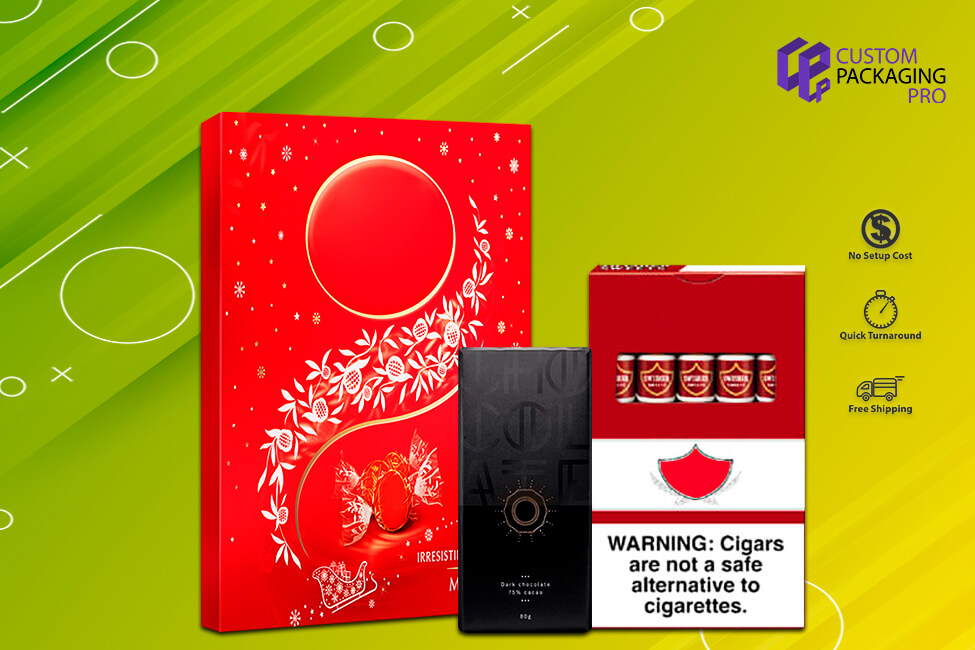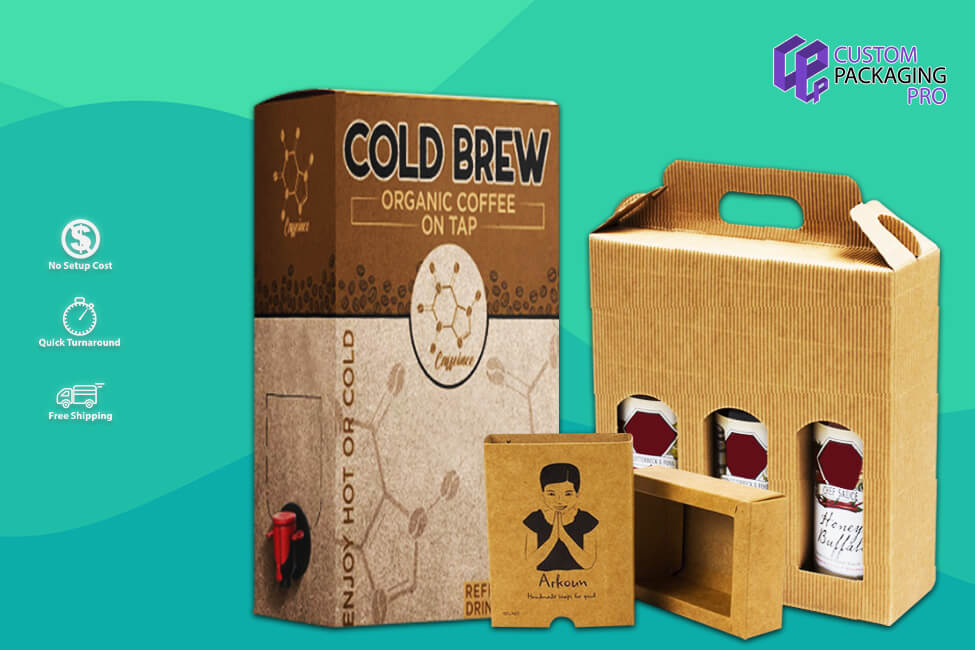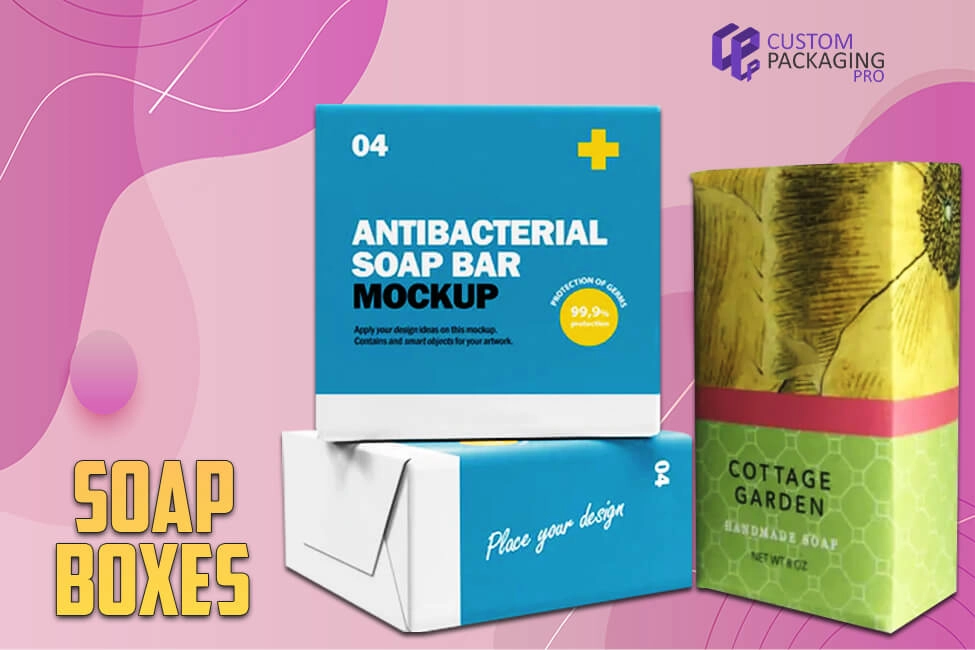March 26, 2024
Manage Promotional Prominence because of Soap Boxes
The product needs to be promoted and preserved, and the only way to do this is by packaging the product. Soap Boxes usually do not seem to be just a regular requirement, but their packaging substantially attracts consumers, guarantees their safety, and conveys additional information. As with the rest of consumers, the trends reflect the interest in innovation and sustainability in contemporary society. The soap has a lousy shelf life and quality if it is not protected from exposure to air and moisture. Resilient packaging helps protect products from breaking during all stages of transportation and management to ensure that the product is delivered to consumers without damage.
Soap Boxes Help to Avoid Moisture for Protection
Besides this, the box is a strong marketing tool, too. They are visually appealing and have a shelf presence thanks to package elements like design, color scheme, and branding. Two benefits of attractive packaging include attracting attention and setting the product apart from competitors on congested store shelves. Artisanal handcrafted Soap Boxes significantly impact purchase decisions regarding a vibrant and whimsical design and luxury skincare brands with their slick and minimalist design. The first of their primary two roles is protecting the product from exposure to possible damage, contamination, and moisture. The constituents, usage guidelines, safety concerns, and manufacturing specifications are all on typical product labels.
Beat Competitive Shelf Ideas by Employing Soap Boxes
Labeling is conspicuous and concise and helps consumers decide, mostly on allergens and specific hygiene requirements. For regulatory requirements, separate, transparent labeling allows consumers to have confidence in what they are buying and represents credibility for those who value ethical sourcing and transparency in their product supplies. Soap Boxes are the most important medium of communicating vital information to consumers. The market for products with a smaller ecological footprint also expands as environmental consciousness expands. Due to this shift in the industry, producing companies are looking into nature-friendly pathways and have begun to research compostable packaging, biodegradable plastic, or recycled materials. They also ensure the goods are well-insulated against damage and breakage during transit.

Custom Packaging and the Series of Product Importance
Packaging has become an essential component of contemporary business strategies, functioning as a critical instrument for marketing, brand distinction, and consumer interaction. Amidst the avalanche of options that characterize the modern competitive marketplace, how a product is wrapped is critical in influencing purchasing decisions, conveying brand identity, and attracting attention. Custom Packaging and its primary function is to differentiate a product from its competitors. In light of the vast array of choices consumers have for virtually any product conceivable, businesses must devise distinctive strategies to distinguish themselves on store shelves and in online marketplaces. This is achieved by integrating unique designs, colors, and shapes that captivate attention and impact brands.
Strengthen Brand Image and Ideas with Boxes
Businesses can strengthen their brand identity and values through the use of packaging. Custom Boxes incorporates design elements, including logos, slogans, and imagery, which symbolize their identity and communication. Maintaining a unified brand identity throughout all packaging materials facilitates the establishment of consumer trust and familiarity with the brand. The initial physical encounter consumers frequently have with a product is its packaging; an exquisitely crafted container can elicit favorable sentiments and build anticipation. Packaging design can stimulate consumer delight and foster brand loyalty by implementing distinctive tactile finishes, innovative opening mechanisms, and Eco-friendly materials.
Printed Boxes Comes With Additional Advantages for Usage
Packaging enables organizations to customize their packaging strategies by particular products and target markets. By comprehending the preferences and behaviors of the Printed Boxes target demographic, brands can create packaging that establishes a more profound connection with consumers. Luxury brands might incorporate sophisticated designs and high-quality materials to attract affluent consumers. Conversely, Eco-conscious consumers would prefer to support sustainable practices and the utilization of recyclable materials, which would be the focus of Eco-conscious brands. An additional significant advantage is its capacity to convey critical product information effectively. In addition to its aesthetic appeal, packaging fulfills a functional function by furnishing vital information, including product specifications, guidelines for its proper usage, and cautionary statements.

Manage Disposable Wastage by Enduring Kraft Boxes
Boxes have surfaced as a multipurpose and environmentally sustainable packaging option in the contemporary marketplace. Produced from recycled materials, Kraft Boxes provide a sustainable substitute for conventional packaging materials, gaining popularity among consumers and businesses. Boxes constructed from recycled paper fibers contribute to mitigating carbon emissions and conserving natural resources by reducing the need for new materials. In addition, their biodegradability and recyclability guarantee their proper disposal following use, contributing further to environmental conservation initiatives. Furthermore, components like cushioning, dividers, and inserts can be added to them to guarantee the safe transportation of several products inside the same container and to offer additional protection for breakable items.
Kraft Packaging Help to Follow Modern Trends for Setting
In addition to their environmentally sustainable characteristics, boxes have exceptional durability and strength, rendering them well-suited for extensive packaging. Whether employed for retail exhibit, shipping, and storage, Kraft Packaging consistently safeguard their contents. Their adaptability to particular packaging specifications increases their desirability to companies seeking unique branding solutions. Personalized logos and designs, as well as intricate colors and graphics. They can be created to enhance brand recognition and reflect their identity. The adaptability above empowers enterprises to design packaging that safeguards their products and functions as an influential promotional instrument. They create an enduring impact on the clientele. An essential characteristic of the organization is its commitment to environmental sustainability.
Build Reliable Alternatives Because of Earthy Kraft Bags
A rustic and natural aesthetic, practicality, and branding potential are attributes of boxes that resonate with contemporary consumers. Kraft Bags impress individuals who prioritize sustainability and simplicity with their textured finish and earthy hues. They convey an aura of genuineness and skillful production. Whether employed to wrap handmade items, organic products, or artisanal goods, these containers enhance their inherent beauty and aesthetic allure while complementing their natural essence. By their compact dimensions, they facilitate transport and storage optimally, thereby streamlining logistical operations and diminishing expenditures associated with shipping. Thus, these boxes fit every unique specification, guaranteeing aesthetic appeal and protection.











